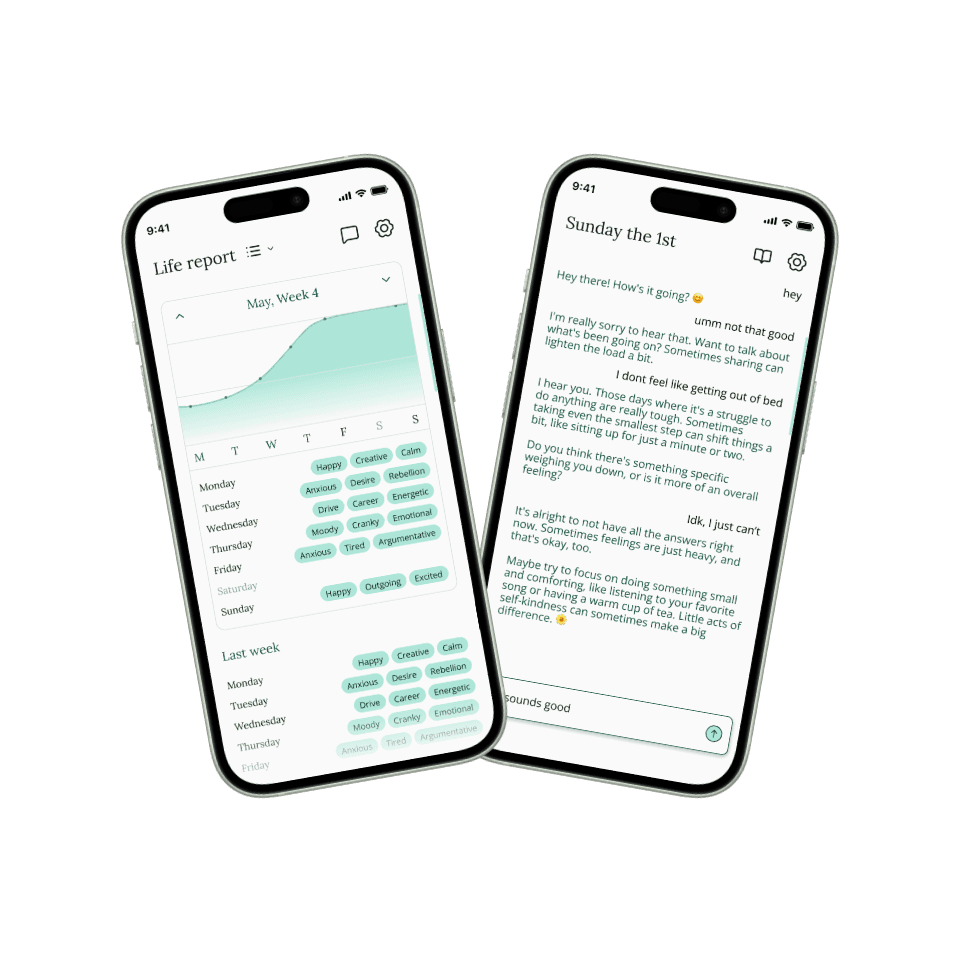
What to Expect in Your First Psychoanalysis Talk Therapy Session
What to Expect in Your First Psychoanalysis Talk Therapy Session
Sep 9, 2024
Sep 9, 2024
Taking the first step towards psychoanalysis talk therapy is a significant decision. If you're considering this form of therapy but feeling unsure about what to expect, this guide will help prepare you for your initial session.
Understanding Psychoanalysis Talk Therapy
Psychoanalysis talk therapy is a form of psychological treatment that aims to uncover unconscious thoughts, feelings, and motivations influencing your behavior and emotional well-being. By exploring past experiences and current challenges, this therapy helps you gain deeper self-awareness and promotes personal growth.
Preparing for Your First Session
It's natural to feel a mix of emotions before your first psychoanalysis talk therapy session. Here are some steps to help you prepare:
Reflect on your goals for therapy
Note down any specific concerns or questions
Compile a brief medical history and list of current medications
What to Expect During Your First Session
1. Introduction and Paperwork
Your therapist will introduce themselves and explain their approach to psychoanalysis talk therapy. You'll need to complete some necessary paperwork, including consent forms and a medical history questionnaire.
2. Establishing Rapport
The therapist will work to create a comfortable, non-judgmental environment. They may ask general questions about your life, work, and relationships to get to know you better.
3. Discussing Your Concerns
You'll have the opportunity to share what brought you to therapy. Your therapist may ask questions to gain a deeper understanding of your experiences and emotions.
4. Exploring Your History
Psychoanalysis talk therapy often involves delving into your past. Your therapist might inquire about your childhood, family dynamics, and significant life events.
5. Setting Goals
Together, you and your therapist will discuss your expectations and set initial goals for your therapy journey.
6. Explaining the Process
Your therapist will outline how future sessions will work, including frequency, duration, and any specific techniques they might use in psychoanalysis talk therapy.
7. Addressing Your Questions
There will be time for you to ask any questions you have about the therapy process or your therapist's approach.
After Your First Session
Following your initial psychoanalysis talk therapy session, take some time to reflect on your experience. Consider:
How comfortable did you feel with your therapist?
Did you feel heard and understood?
Are you clear about the next steps in your therapy journey?
Remember, building a therapeutic relationship takes time. It's okay if you don't feel an immediate connection – give yourself a few sessions to settle into the process.
Conclusion
Your first psychoanalysis talk therapy session is an important step towards self-discovery and emotional well-being. By knowing what to expect, you can approach this experience with confidence and openness. Every therapeutic journey is unique, and your therapist is there to guide and support you along the way.
All the best!
Taking the first step towards psychoanalysis talk therapy is a significant decision. If you're considering this form of therapy but feeling unsure about what to expect, this guide will help prepare you for your initial session.
Understanding Psychoanalysis Talk Therapy
Psychoanalysis talk therapy is a form of psychological treatment that aims to uncover unconscious thoughts, feelings, and motivations influencing your behavior and emotional well-being. By exploring past experiences and current challenges, this therapy helps you gain deeper self-awareness and promotes personal growth.
Preparing for Your First Session
It's natural to feel a mix of emotions before your first psychoanalysis talk therapy session. Here are some steps to help you prepare:
Reflect on your goals for therapy
Note down any specific concerns or questions
Compile a brief medical history and list of current medications
What to Expect During Your First Session
1. Introduction and Paperwork
Your therapist will introduce themselves and explain their approach to psychoanalysis talk therapy. You'll need to complete some necessary paperwork, including consent forms and a medical history questionnaire.
2. Establishing Rapport
The therapist will work to create a comfortable, non-judgmental environment. They may ask general questions about your life, work, and relationships to get to know you better.
3. Discussing Your Concerns
You'll have the opportunity to share what brought you to therapy. Your therapist may ask questions to gain a deeper understanding of your experiences and emotions.
4. Exploring Your History
Psychoanalysis talk therapy often involves delving into your past. Your therapist might inquire about your childhood, family dynamics, and significant life events.
5. Setting Goals
Together, you and your therapist will discuss your expectations and set initial goals for your therapy journey.
6. Explaining the Process
Your therapist will outline how future sessions will work, including frequency, duration, and any specific techniques they might use in psychoanalysis talk therapy.
7. Addressing Your Questions
There will be time for you to ask any questions you have about the therapy process or your therapist's approach.
After Your First Session
Following your initial psychoanalysis talk therapy session, take some time to reflect on your experience. Consider:
How comfortable did you feel with your therapist?
Did you feel heard and understood?
Are you clear about the next steps in your therapy journey?
Remember, building a therapeutic relationship takes time. It's okay if you don't feel an immediate connection – give yourself a few sessions to settle into the process.
Conclusion
Your first psychoanalysis talk therapy session is an important step towards self-discovery and emotional well-being. By knowing what to expect, you can approach this experience with confidence and openness. Every therapeutic journey is unique, and your therapist is there to guide and support you along the way.
All the best!
View more insightful blog articles
Today's tune



Track your mental health and get support between sessions with Verba
Learn more

Track your mental health and get support between sessions with Verba
Learn more

Track your mental health and get support between sessions with Verba
Learn more

Advait Naik
Advait is the founder of Verba and is working at the intersection of psychology, design and technology to create Verba, an app that helps us be more self aware through clarity and communicate our life in therapy